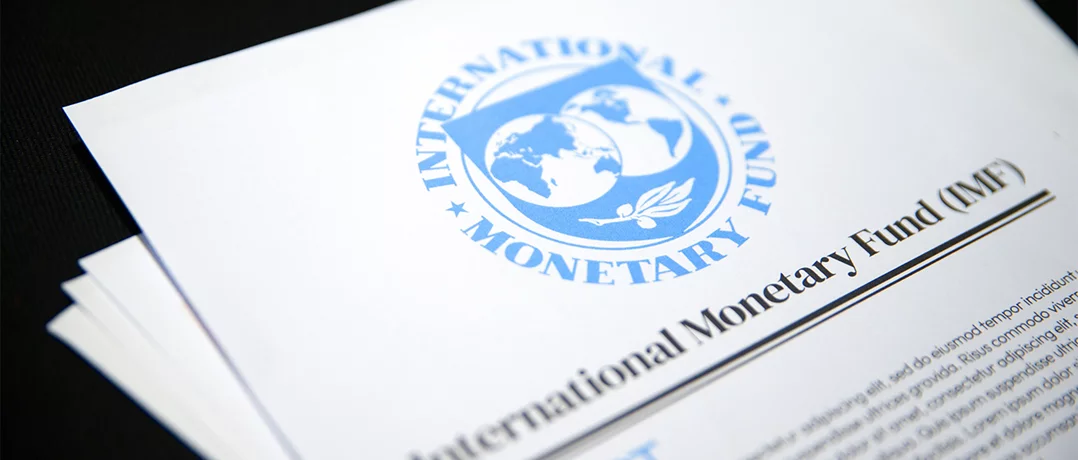Lebanon’s negotiations with the IMF continue amid progress on reforms, but a final rescue deal remains elusive as banking, tax, and fiscal measures are still pending, leaving the country’s economic future uncertain.
IMF–Lebanon: between reform promises and the long road to a final agreement
IMF–Lebanon: between reform promises and the long road to a final agreement


Despite renewed negotiations with the IMF and the presence of a high-level delegation in Beirut, Lebanon is still struggling to finalize an agreement. Progress has been noted, but major reforms from banking restructuring to tax collection remain stalled, leaving the country caught between urgent needs and political inertia.
Lebanon’s long-awaited rescue deal with the International Monetary Fund (IMF) is still hanging in the balance. After several days of discussions in Beirut with IMF officials, Finance Minister Yassine Jaber acknowledged on Thursday that, while steps have been taken, a final agreement remains elusive. With unresolved laws, unimplemented reforms, and rising impatience from the IMF, the road ahead is proving as steep as ever.
Lebanon is pressing ahead with negotiations with the International Monetary Fund (IMF) to secure a vital agreement aimed at stabilizing its battered economy. Between strict recommendations, pending reforms, and internal debates, the IMF delegation currently in Beirut is pushing to speed up a process that is as necessary as it is uncertain.
One step forward, but still no finish line. Meeting this week at the Ministry of Finance, representatives of the Lebanese government and the IMF delegation reviewed the reforms already launched, the laws passed, and those still pending. “Progress has been made, but we have not yet reached a final agreement,” Finance Minister Yassine Jaber admitted on Thursday, following the delegation’s last round of meetings led by IMF Regional Director Ernesto Rigo.
The IMF team met with Parliament Speaker Nabih Berri, Prime Minister Nawaf Salam, key ministers, economic bodies, and the Central Bank of Lebanon. Discussions centered on reforms long overdue and the conditions that must be met before any financial program can move forward.
Lebanon’s commitments
The IMF is pressing Lebanon on several priority fronts:
Banking sector reform: adoption of the restructuring law and clarification of the loss-distribution mechanism. The IMF has also raised concerns over the banking restructuring law adopted by Parliament in July, which may still need amendments.
Tax and customs reform: improving revenue collection before any tax increases. Work has begun to modernize customs, VAT administration, and real estate taxation. The IMF also criticized the suspension of the fuel tax, initially designed to fund support for military personnel, but halted by a State Council decision. Jaber stressed that the government is waiting for a ruling to reinstate this critical source of revenue.
Budget transparency: adoption of a medium-term fiscal framework (MTFF) and commitment to a primary surplus of 1.7% of GDP, considered ambitious under current conditions.
Public finances: better monitoring of expenditures and boosting revenues in line with existing laws.
The figures and scale of aid
Negotiations for a new rescue package resumed in May, after the failure of the 2022 staff-level agreement (SLA), which collapsed because Lebanon did not meet nine prior conditions, including banking sector restructuring and distribution of financial losses. The country still hopes for a multi-billion-dollar program spread over four years, conditioned on reforms. The program is seen not only as financial relief but also as a gateway to unlocking broader international aid and encouraging investors and the diaspora to inject fresh capital.
A still-uncertain timeline
Jaber acknowledged that Lebanon is not yet at the stage of a final deal. The law on loss distribution remains pending, and Parliament has yet to address it fully. He confirmed that the legislation would not be passed before mid-October, when the Lebanese delegation travels to Washington for the IMF and World Bank annual meetings. “We still need time,” he said, while expressing optimism that negotiations would not suffer the same fate as in 2022.
A process under political and social strain
The IMF has voiced impatience, urging Beirut to accelerate reforms. “The IMF wants to see things move faster,” Jaber admitted, but he also stressed Lebanon’s unique circumstances.
Has the war in Lebanon ended? Have the daily attacks stopped? Lebanon has a particular situation.
He added that the government, in place for only seven months, had already achieved a number of reforms.
Despite obstacles, Jaber expressed confidence that momentum is building: “The IMF office in Beirut is working closely with us. Consultations are ongoing. In Washington, we will have intensive meetings and enhanced cooperation, and we hope to soon begin the path to an agreement.”
The road to an IMF deal remains bumpy. Between urgent economic needs, political hurdles, and social pressures, Lebanon is trying to reassure its partners while its citizens wait anxiously. For ordinary Lebanese, exhausted by years of crisis, one question lingers: how much longer will it take for promises to turn into tangible results?


